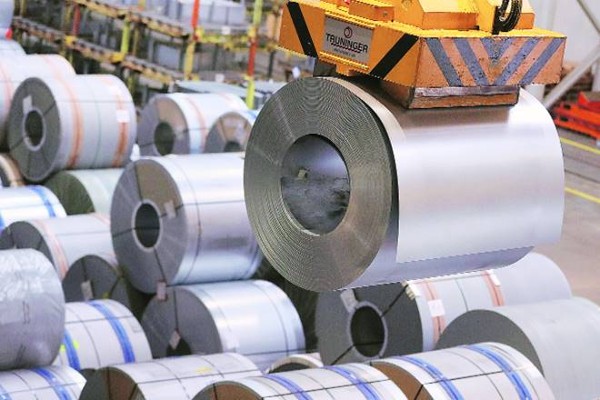Industries are producing or manufacturing units of any country. The objective of them is to prosper and procure production. The production industry is the largest growing industry presently. The production and financial obligation are in the hands of industries. The aim is to bring investment to increase manufacturing of services, for both businesses, and direct consumers. The prospectus funding and strategies for industries is planned by the government, which occurs every fiscal year. Moreover, the industry stands on the goods it procures. The goods for every industry differ according to the size and operation. And hence they are classified into different units of production.
Globally India is one of the leading manufacturer of agricultural products. The industry holds higher investment and India is the chief exporter of these products. The fresh investors reach out to India for investment to and commercial ventures
What are industrial goods?

Industrial goods are anything which is bought by industry and it is used for production purposes. There are several industrial goods which perform different functions. They’re made up of machinery, manufacturing plants and any other goods used for industrial purposes. Industrial goods are made up on the demand of consumer goods. The industrial good is classified in two categories, production good and support good. Production goods are used in final, production of a final consumer good product. Whereas, support goods are used to produce consumer good production equipment example, machinery and plants.
Industrial goods are those goods which industries sell to other businesses. They are not for direct consumption by consumers because they are bulky in nature. These goods further help in the production of direct other goods and services that can be directly used by customers. These goods can be tangible and intangible, or direct and indirect consumption goods. Mostly, industrial goods possess heavy weight, these goods are long term investment into business and are used for long time.
Industry goods in India

Industrial products are a major growth sector in India for Indian economy. The various industries produce machinery, equipment, electrical and metal products, cement, construction material, rubber and plastic, more references of industrial products can be seen on nri industrial company. The sector has various objectives for the growth of infrastructure and development. The industry is well-versed in providing long term investment into tangible and intangible goods. The industrial growth in India is noted to be highest from the last decade. Moreover, after the global pandemic period the focus of government is more entitled towards manufacturing, after the long covid period of 2 years the recovery of industries is the primary motive of central government.
With the government of India unveiled the Production Linked Incentive Scheme (PLI) to boost India’s manufacturing capacity and promote the businesses internationally by carrying out exports and spread the power of India’s competitiveness. Building new capabilities and increasing the incremental investment and sales. New investors are perceiving India as potential investment market destination.
Forming Alliance, multinational partnership and joint ventures to secure FDI. Acquiring benefits from advanced technology and carrying out production through factory automation. Companies are trying to go beyond the functional cuts and focus on the strategic remobilization of cost base allowing reinvestment to critical area of a business with new tools and levers.
Classification of Industrial Goods

- Raw material – These are the incomplete goods, which provides utility after they are converted into finished products. Generally, they serve the base of aby industry, as without raw material the production process cannot be carried out. The type of raw material differs wit industry to industry. The producers of raw material sell their products to industries and marketing intermediaries. They are bulky in nature and require huge transportation costs. Moreover, they are produced by few large producers. It markets its product directly to industry buyers. Some examples of raw materials are livestock, oil, wheat, cotton, sugarcane etc.
- Material goods and non-material goods– Material goods are those goods that are tangible. The goods that can be touched, sensed and transferred from one place to another. For example, cars, shoes, cloth, wheat etc. Non-material goods are those goods that are intangible in nature. They cannot be touched, transferred or seen and do not possess any shape and size. All the services are counted under non-material goods, for example the services of doctor, nurses, teachers, lawyers etc. The common trait of both material and non-material god is that they satisfy human wants in their own way.
- Capital goods– These are those goods that are used for production. They can be further classified into heavy equipment, light equipment, plants and buildings. Heavy equipment is long term and bulky, for example turbines, generators, and earth moving equipment. Light equipment possesses lower purchasing price and is not bulky in nature. And plants and buildings are immovable properties, the area which they acquire is used for setting up machinery and perform production. Capital goods are assets of industry, they carry out production process, converting raw material to finished product, so that it could be sold further to earn money.
- Supplies and services– Supplies and services support the operation of the purchasing organization. They are not considered as finished products and are classified in two categories. These are standardized products and supplied in every industry area wise. For example, oil, grease, pencil, stationery etc. are all supplies goods. On the other company needs a variety of services such as auditing services, legal services, courier services, business advisory services and more. These services are paperwork services and are also known as intelligence services.
Conclusion
Being manufacturing industry as the leading industry in India. The manufacturing or industrial sectors are the foundations of the economy. A country’s development is held through its infrastructure. The potentiality of India’s leading manufacturing industries is beyond. The future industry namely, quantum automation, artificial intelligence and 5G internet network services. Are all identified as technological domains that have potential to transform the country. The industry is formulated to bring investment from the international market. Therefore, it can be concluded that the market for manufacturing industry has great importance for economy.
